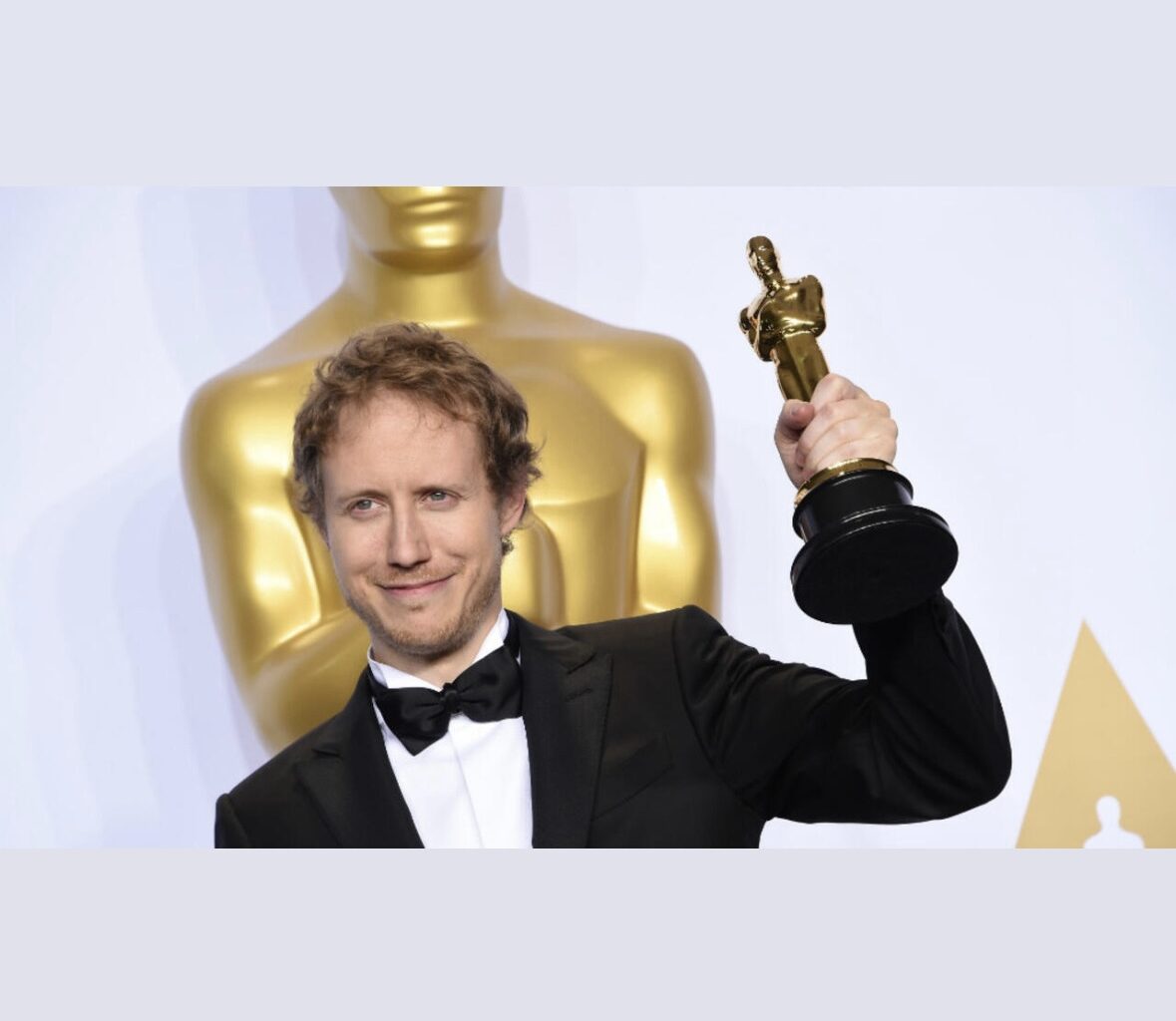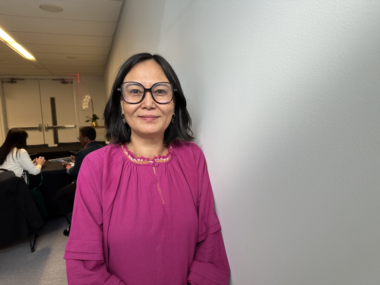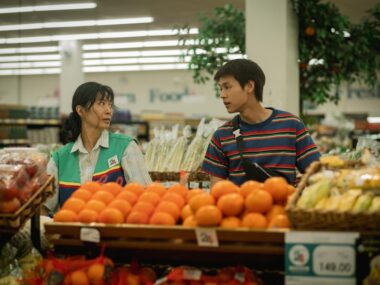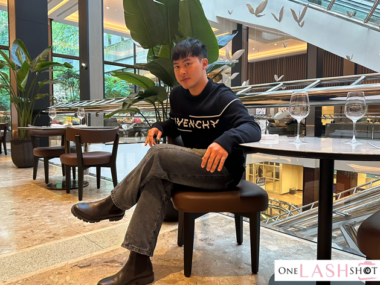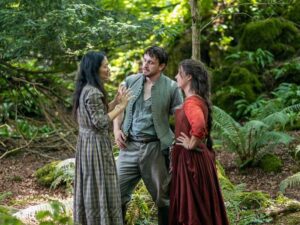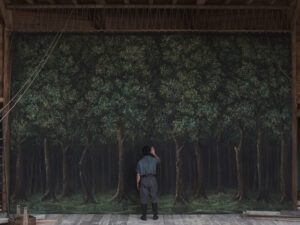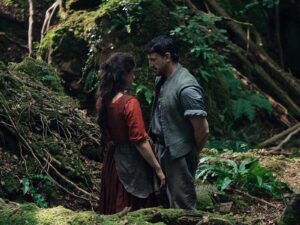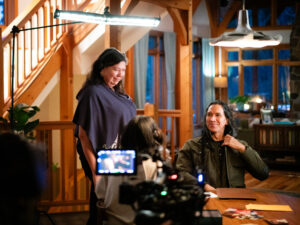László Nemes, an esteemed Hungarian auteur and screenwriter, etched his name into cinematic history with his debut feature Son of Saul (2015), which reverberated across the global stage. Premiering in the highly coveted main competition at the Cannes Film Festival, the film garnered the Grand Prix, cementing Nemes’ stature. In a groundbreaking achievement, he became the first Hungarian director to claim a Golden Globe for Best Foreign Language Film, with Son of Saul also securing the distinction of being only the second Hungarian film to win the Academy Award for Best Foreign Language Film.
His latest work, Orphan, unfolds amidst the smoldering remnants of Hungary’s 1956 Revolution. In the aftermath of Soviet tanks and a nation fractured by violence, 12-year-old Andor (Bojtorján Barabas) grapples with his fractured identity. Eleven years after the liberation of the camps, his father’s absence looms large, and he lives with his stoic, vigilant mother, Klára (Andrea Waskovics), under the unrelenting surveillance of a regime suspicious of their possible connection to the underground resistance. Co-written with Clara Royer (his collaborator on Son of Saul and Sunset) and shot on 35mm by the talented Mátyás Erdély, Orphan emerges as a poignant, chilling meditation on survival, the search for self, and the indelible ties of family. Orphan had its North American premiere at the Toronto International Film Festival on September 9, 2025.
One Lash Shot had the distinct privilege of engaging with the brilliant director László Nemes, uncovering the raw emotions, thoughtful insights, and intricate layers that breathe life into his haunting new film, Orphan.
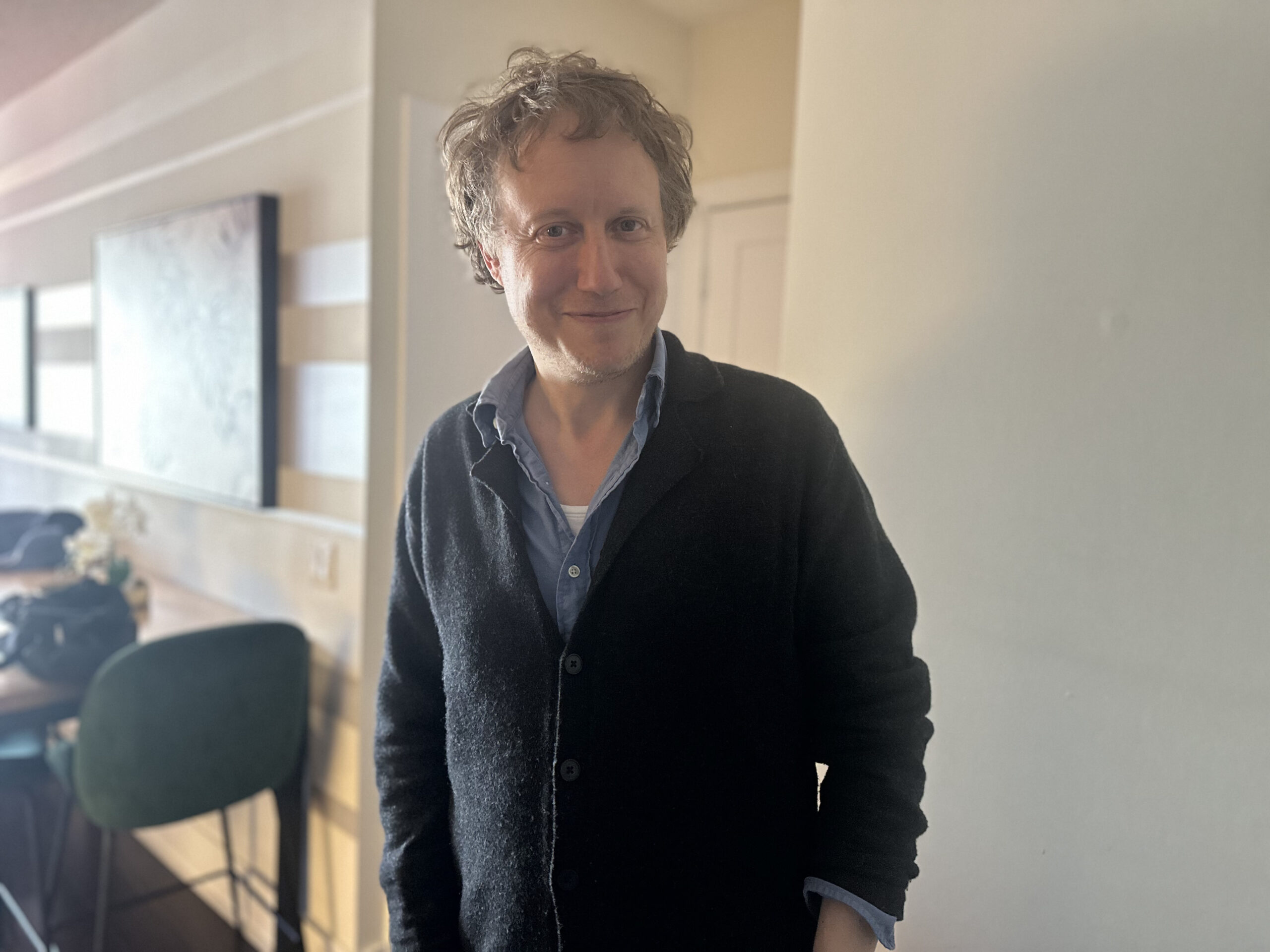
You explored communism in Hungary and the aftermath of the failed uprising. I’m curious—what personally drew you to this period, and what inspired you to tell this particular story?
Well, the tricky thing with this movie is that it originates from my father’s story. Because of him, I grew up knowing that his history wasn’t something clear-cut, obvious, or easy to integrate. To understand my father’s story, I had to understand my own as well. Without his story, I wouldn’t be here either. So, in a way, my own existence was at play here. That’s one aspect. The other is that I grew up as a kid in communist Hungary in the 80s, so I had a very close encounter with the repressive regime, and I felt it on my skin. It’s something I still remember to this day.
It wasn’t as harsh as it was in the 50s, but still, it had its impact. These two things—my father’s history and my childhood experience—led me to bring this story to life, much later, once I was able to fully understand its complexity. I’m interested in repression, both in the sense of societal repression and psychological repression of the individual. In this film, in a way, the two are interconnected.
What makes it so different to portray trauma through a child’s perspective?
Maybe it’s because I experienced an oppressive regime when I was a kid. That experience stayed with me. In a way, when you’re a child—at least, that was my experience—you have this magical world of childhood, but it’s inextricably linked with a world of violence.
I think when you’re a kid, it creates a very specific sensation. As an adult, you understand much more, but as a child, you can’t fully grasp the whole picture. You can’t analyze it. The good and the bad are often hard to separate. That’s what interested me: bringing the audience to the level of the child. I wanted to tell the story from a child’s perspective, but in an immersive way. I didn’t want the audience to be judges; I wanted them to be witnesses. That approach shaped my direction in the film. So, in a sense, I’m presenting myself here.
The main characters are holding onto their sense of what it means to be Jewish, despite the turmoil surrounding them. Could you share more about your passion for telling these kinds of stories and how they connect to your own personal journey?
I grew up with the shadow of the Holocaust in my family. My father, to this day, says he owes his life to Auschwitz, which is a dramatic thing to say. The Jewish experience in Eastern Europe, where most of the Holocaust occurred, holds something very significant. It speaks to the vicissitudes of the 20th century, how traumas were layered on top of each other and kept accumulating.
Because my family suffered under both totalitarian regimes, I carry with me not just the sadness and wounds of the past, but also a thirst for freedom. I make films that only I can make; I don’t want to make the films that anyone else can. In this story, I felt that I could transcend my personal history and connect with something sacred. It became almost archetypal—moving beyond the specificities and tapping into something much deeper for me.
The title is very evocative. What does the word “orphan” symbolize for you in this film, especially since Andor isn’t technically an orphan?
I feel very close to this. I am a product of a wounded family and divorced parents. I feel I’m very much an orphan in a way, and I felt that this kid was an orphan as well because he was abandoned by the adults. So many kids are abandoned by adults, and I think they still are. In a way, the sacred link between adults and children is most of the time forgotten or abused, particularly in abandonment—mainly emotional abandonment. I guess that’s what it’s referring to: the emotional abandonment of the main character.
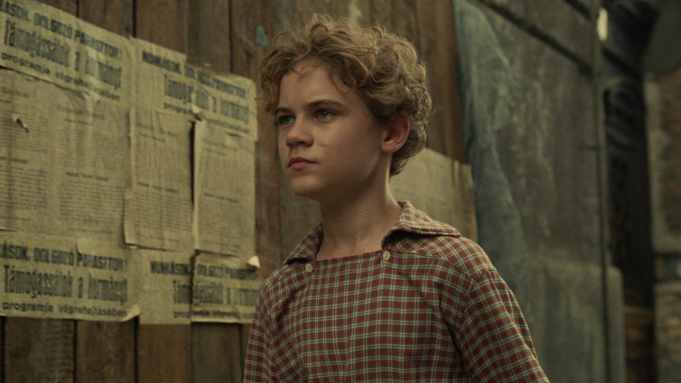
How did you approach casting for the film? What was it about Bojtorján Barabas that made him the right choice for the role?
We had an open call in Hungary and saw thousands of kids. They sent in their self-tapes, and we asked them to tell a story about some form of unfairness or something that happened to them. His energy came through immediately; I could feel that he was already full of rage. During the selection process, this became even more confirmed.
Bojtorján Barabas has such a strong presence, especially for his age. The mother-son relationship feels both distant and tender—how did you develop that dynamic, and do you think it came across as you hoped?
Most of it is based on my grandmother, who had a very difficult life. The story captures that well. It’s not an easy position—her son is both the most important thing to her, yet his origins are dark and painful.
So, how do you navigate these contradictions in life? I wanted to integrate the essence of this contradiction into their relationship right from the screenplay stage.
In terms of directing, I aimed to bring them into a zone of sweetness, but that was inseparable from the toughness they had to endure in their everyday lives.
You mentioned that if we stop telling great stories, we condemn ourselves to decadence as a civilization. What are the urgent stories you feel need to be told today, particularly in European cinema?
I think there aren’t many big stories left. If you look at anthropology, the big stories are universal across civilizations—they keep coming back. These big human stories often have archetypal simplicity and a shared quest. For me, the films I connect with most are those that tell basic human stories.
It’s the humanity I’m most interested in. I’m not so focused on the filmmaker’s commentary. I’m more focused on bringing to life something foundational and human. With the rise of the internet, I feel cinema has become more like journalism, but I don’t think cinema is journalism. Cinema should focus on uncovering big human stories in very specific places and times. This could be a father and son, a mother and daughter, or family and belonging.
Even the major religious texts, like the Bible, or key anthropological stories, are retellings of very human experiences. I think cinema has moved away from telling these big, universal stories, and that’s why I’m trying to highlight that cinema is not journalism. It’s something bigger and more complicated—it’s not black and white. Things are intertwined.
What do you think is the role of European cinema today? Considering the contrast, you’ve lived through more wars than Western civilization—how does that influence your perspective?
I think European cinema has a beautiful tradition, but I’m not sure we’re still making those kinds of films. Sometimes, it’s hard to make a movie that tells a simple, human story. Again, referring to what I mentioned earlier, these are the kinds of stories we need to tell—basic, human stories. Hollywood no longer tells these kinds of stories either, so someone needs to step in and do that.
Why do you think Andor never fully accepted that person as his father?
Or did he?
He grudgingly accepted him. It’s hard to accept a father. It’s not a question of who he is; the real question is whether he accepts this man as part of himself. The victim and the perpetrator are intertwined within him. That’s what happens—this is the anti-moralizing attitude that can’t be easily resolved. I’m always interested in that concept.
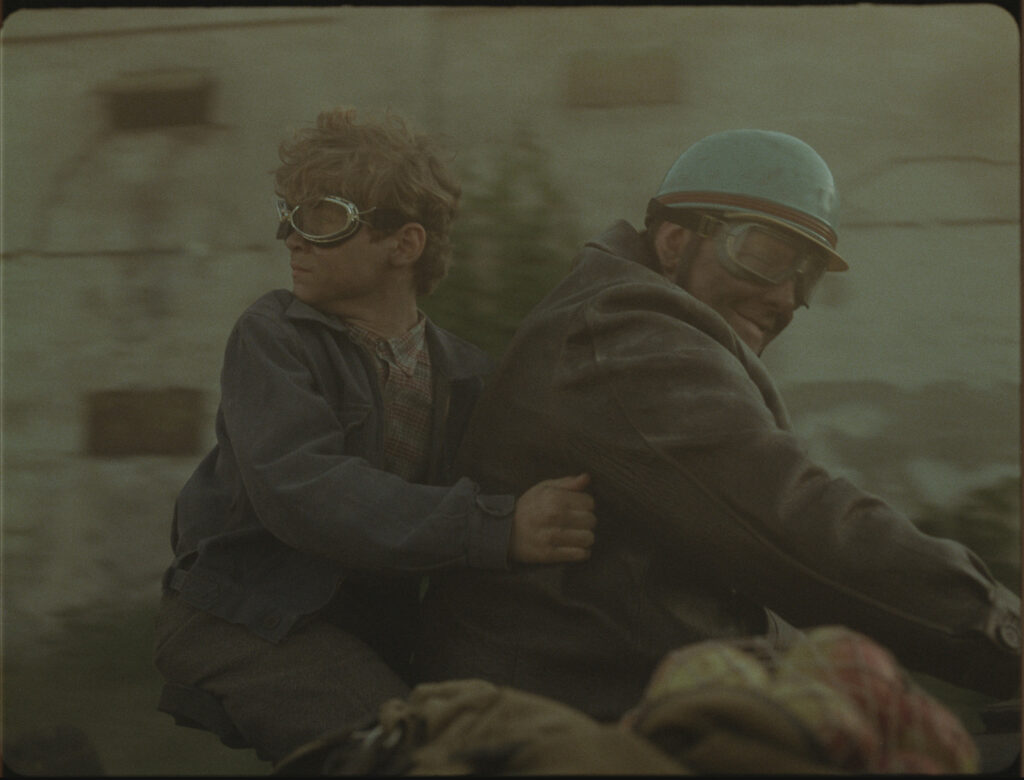
Andor’s relationship with Sari feels more like a friendship, yet he hides something crucial from her. Why do you think he chose to keep that secret?
It’s pre-sexual. I wasn’t interested in anything romantic.
There’s a point in the film where there’s no going back. He’s so deep in his own world that he can’t explain it to anyone else. That’s when he becomes completely an orphan. He’s orphaned from the world, fully disconnected.
Only the audience can bear witness to him; no one else can. I think most human existence, especially during major conflicts and difficult situations, involves the individual being alone. No one can fully understand that person. That’s the core of it.
I think the power of cinema is to bring the viewer into that space of connecting—or being connected—to another human being, in a way that’s incredibly powerful, because things are complicated.
You often explore human stories and history in your films—what draws you to these themes?
I think history is an interesting vantage point to film. Obviously, the human story is the same.
Son of Saul is a groundbreaking film, presenting an unprecedented way to narrate what happened in Auschwitz. How do you begin developing a new cinematic language after reshaping how stories are told? How did you build the cinematic language of this film?
Son of Saul is almost like a manifesto for a beginner’s film. It focuses on one person, with no external support. It’s still a beginner’s movie because there’s no psychological interaction, no backstory. I understand that this simplicity is one of the advantages of the film. But then, how do you evolve into something more complex with more interactions? That’s what interested me—how space and time are shared between the audience and the characters.
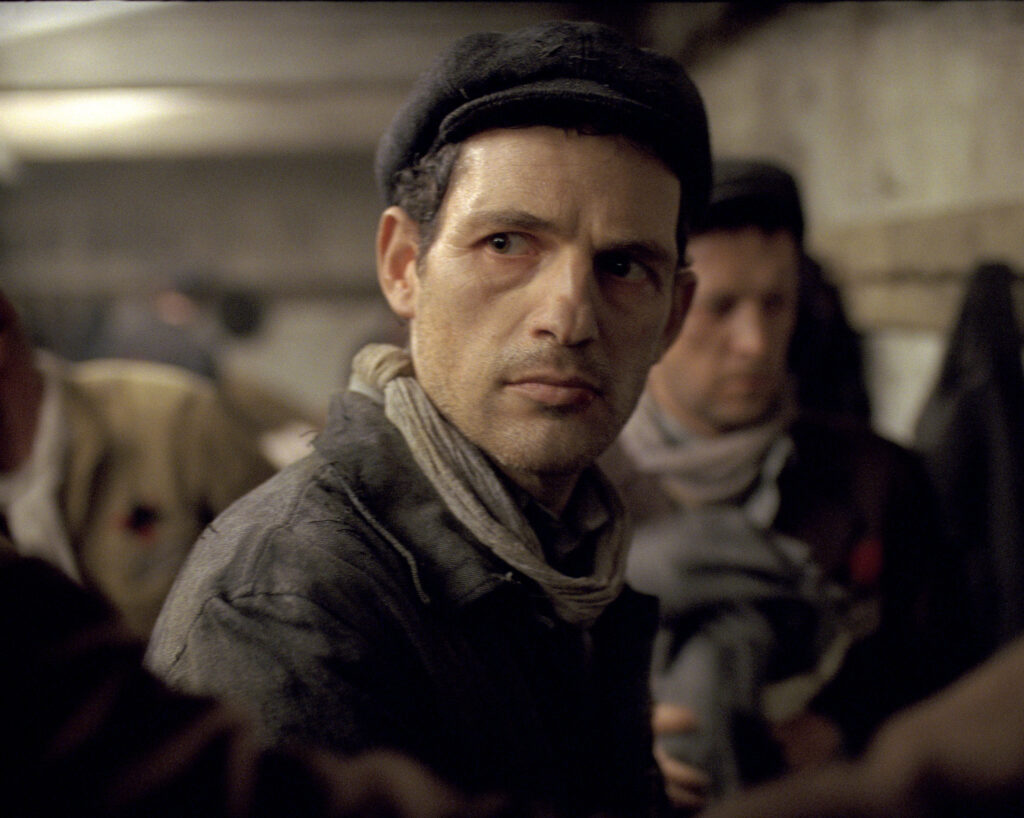
In this case, there’s both roughness and sweetness, much like childhood itself. To capture that perfectly, I needed a point-of-view-based approach to cinema. It’s still from the main character’s perspective, and we stay with them throughout the entire film. Every scene, every shot, is seen through their eyes, and the camera is never entirely detached.
It’s the same basic logic, but it integrates more elements. I wanted to use space differently and build up the point of view of the witness.
[Author’s Note: Köszönöm, László. Alig várom, hogy megnézhessem a következő filmedet!]
